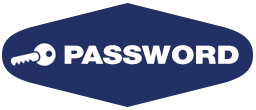Useful suggestions
How to choose the translation service that best meets your needs
Here are some useful suggestions on how to choose one agency rather than another, such as the reliability of a provider and quality standards. How to rely on tried and tested professionals to translate your material, and also to understand and make yourselves understood by our foreign partners.
Here are a few key points for choosing your provider:
The Quote
To get a reliable quote, just give your provider the definitive text that needs to be translated, specifying all the useful information : (timeframe, target readers etc). In our case, all you have to do is send the material to obtain a free quote which is binding on us, containing all the necessary indications to make a well-founded decision. ATTENTION: check that the quote contains unit price (and definition), total price, possible flat rate or discount, payment conditions, assignment conditions etc.
Choosing a provider
Taking for granted you have already reached the conclusion that it is too expensive to hire an internal translator, given the high fixed costs involved, here is a list of the advantages/disadvantages in choosing one translation agency rather than a single translator.
Advantages:
- More availability than a single translator, in terms of time (who may be working on another project when you need him/her)
- Access to a higher number of translators and consequently the possibility of obtaining large workloads with reduced delivery times
- Possibility of co-ordinating multiple language or complex projects.
- Double quality control (by the translator and by our in-house revision service).
- The technical experience of a staff of people (not only one)
- Additional services (e.g. interpreting, DTP).
Disadvantages:
- The cost is usually higher than that of a freelance translator. (The Agency is a filter and has to earn itself)
In conclusion, agencies are generally preferred by companies needing complex translations on a large scale, which are generally non-quantifiable beforehand. As a matter of fact, a good translation agency is able to coordinate extensive projects and select the most suitable translators for a particular job.
How to check the professionalism, reliability and skill of an agency
By asking a series of useful questions!
How do you choose your translators? How long have you been in business? Do you have a quality control procedure? Do you have in-house translators and proof-readers?
The jungle of prices
Many people speak a foreign language, but this does not mean they can correctly translate a wide range of texts. This ensures that the translation market is very varied and fragmented between those who “improvise” as translators and those who, with many years’ experience, are Professional Translators.This, of course, gives rise to a wide range of prices. To avoid comparing chalk and cheese, it is essential to highlight that if agency X costs 25% less than agency Y, it doesn’t necessarily mean you have made a saving. Always ask yourselves: how much would a critical error in a contract worth, let’s say, a few million euros cost you?
How to Reduce Translation Costs
Often, poor scheduling of the work flow leads to delays and money being wasted. Below are some simple suggestions on how to cut costs, avoid useless expenses, avoid redoing the same things ten times over and obtain the finished product exactly on the date you need it, with maximum efficiency.
- Make sure you send us the final version of the document to be translated (where possible)
- Cut out the unnecessary parts. Avoid flowery adjectives, unless they are absolutely necessary, especially in technical texts.
- Ask yourselves whether what you have written is needed for understanding, or whether it is just repetition. You will save time and money, and gain on quality!
- Cut out any information that is not relevant to the international market (for example: addresses of your assistance centres in Italy if the machinery is destined for England!).
- Be direct. It is not necessary to include information not related to your aims in the text.
- Be precise and specific in the terminology you use: this will make things easier for the translator.
- Where possible, compile a glossary for use by your readers. In any case, once you have chosen a particular term for a concept or subject, be coherent all the way through.
- Avoid using the passive form, where possible.
- Avoid long, contorted sentences, too many adjectives and adverbs.
- Use good punctuation!
- Avoid references to jargon which are unfamiliar to anyone outside your company; eliminate all clichés. Also be careful of word games – always dangerous in translation, because there is the risk that the subtle meanings will not be understood by the reader.
- Avoid abbreviations and acronyms, unless their meaning is patently obvious to your reader, and in any case illustrate them the first time they are used.
- When deciding on the layout for your material, remember that a translated text does not necessarily take up the same amount of space as the original (for example, English is more concise than Italian).
 English
English





